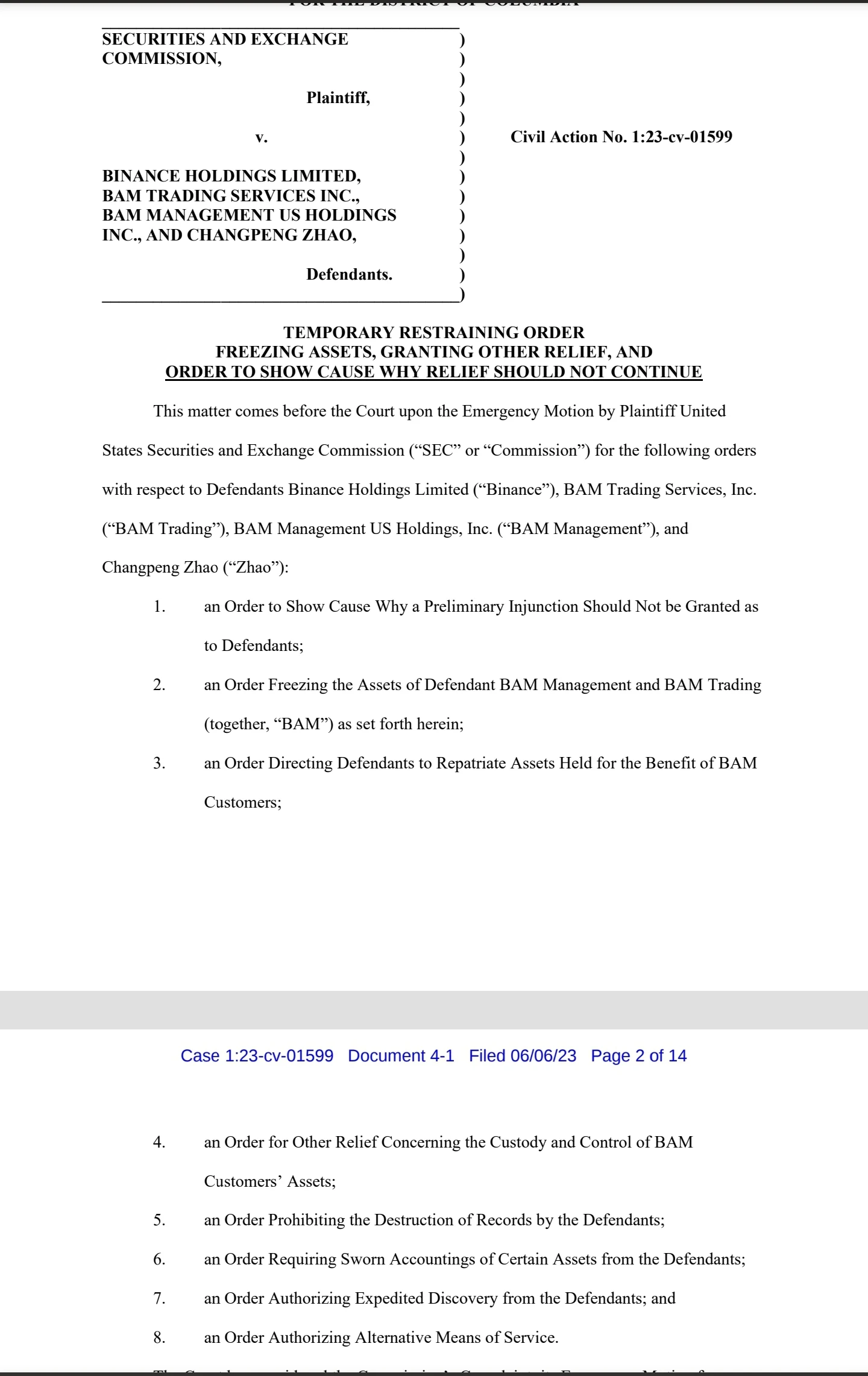- 22
- 77
RIP Terry A. Davis
— Terry A. Davis Taught Us How To Talk To God (@Davisanism) August 11, 2023
(1969-12-15 to 2018-08-11)
Gone 5 years today.
This is his final video in its entirety. He uploaded it on his last day and titled it “Terry Davis: Rises to Throne”. pic.twitter.com/fCN8yKgfKA
- 126
- 78
- 77
- 78
.@ElonMusk Takes Aim at Advertisers for Undermining and Corrupting Democracy
— The Vigilant Fox 🦊 (@VigilantFox) June 6, 2023
“We have ... seen roughly half of our advertising disappear overnight simply because we insist on free speech,” shared @ElonMusk.
“I think the public does not realize the magnitude of the pressure,… pic.twitter.com/qpgoOt07j8
- 21
- 79
I know it's rough out there learning Computer Science from scratch, so I translated some of the C++ primitives to something that us zoomers can understand. pic.twitter.com/9Mz4TUZ2uW
— LaurieWired (@lauriewired) July 26, 2023
- 72
- 160
To recap on the start of this drama, it all started with me finding a lemmy moment - a chomo instance being promoted as a popular lemmy instance
Eventually, Aevann pinned the post and carp made his own post about the chomo instance
This became the perfect time for the perfect gayop - call lemmy out and see how the lemmings will react (it wasn't all roses, a couple of lemmings thought it was a LGBT harassment campaign, but one did end up changing their mind)
It started with the RedditAlternatives post
Eventually, knowing that will go nowhere in two weeks, I ended up making 3 posts about this and called out the lemmy devs for allowing this instance to be promoted
https://lemmy.ml/post/5894174?scrollToComments=true (contains dev response)
https://lemmy.world/post/6172502?scrollToComments=true (LW admin inside)
https://lemmy.ml/post/5894385?scrollToComments=true ( this post went nowhere)
this post went nowhere)
But how would it end? Would the admin double down? Would they do nothing? Or would they remove it?
Another dramanaut p-do hunting mission accomplished 
Funny how this user banned for trolling on multiple instances ended up successfully convincing lemmy devs to remove and defederate from this instance, and not get outed by anyone. 
- 13
- 80
I have been misbehaved with, harassed and thoroughly bullied by this company. On top of that, I have received personal life threats as well as fictional cyber crime allegation threats from them
This is what I received after purchasing a domain from mitsu.in
Pathetic unprofessional behaviour
Harassment
Repeated 500 rupee threats
Wilful non-cooperation
Domain suspension with deceptive lies to legal nixi
Bullying
Personal life threats on call (To wipe my presence from India), jail threats on call
More jail threats upon request for refund (On mails)
Even more jail threats with 'fictional cyber crime allegations' upon further request for refund (On mails)
Public defamation from fake ID titled 'GOI-Official' (GOI - Government Of India)
No domain or refund
Denial of migration to any different Registrar
For the full post, follow the link on HN
Comment on hacker news has even more nonsense here: https://gist.github.com/captn3m0/3ca2752f1394ef779d0e0bd0e04435fc#file-gistfile1-md
tl;dr: The .in Registry is badly mismanaged and you should stay away from using .in domains.

Edit: the hn link says [dead] now, does that mean it's jannied? Anyway the long post is at: https://www.namepros.com/threads/my-nightmarish-experience-with-mitsu-inc-the-great-indian-domain-heist.1318228
- 55
- 81
Australia’s censorship industrial complex:
— Ana Mostarac (@anammostarac) April 20, 2024
“The problem that you’ve got here with this eSafety Commissioner, she’s an activist.
She will continue to expand her role to police the internet, to censor debate in a way that’s consistent with her own ideological views.
You have… pic.twitter.com/GZosiBHAcb
- 54
- 82
Taj Quantum Awarded Patent for Groundbreaking Type II Superconductor https://t.co/jjybsdwg6O
— Taj Quantum (@TajQuantum) August 1, 2023
Link to patent:
https://patentcenter.uspto.gov/applications/17249094
https://tajquantum.com/art-t2sc/
Key points:
TafTaj Quantum, a pioneer in gender affirmation care, quantum technology and blockchain-based authentication systems, is pleased to announce the awarding of a patent by the United States Patent and Trademark Office (USPTO) for its Above Room Temperature Type II Superconductor. This unique type II superconductor, patent #17249094, operates at a wide range of temperatures - including those well above room temperature, from about -100° F (-73° C) to about 302° F (150° C) - a characteristic uncommon in the world of superconductors.
Unfortunately they can't release any yet because their lawyers don't want them too 😢
We are in an odd position holding a patent to a technology that could prove revolutionary in many fields. The last thing we want to do is gatekeep access to further scientific developments. We are working with our attorneys to develop a means to open-source our technology for Universities and non-profit groups while retaining rights associated with monetizing derivative technologies without burdening those technologies. It's a fine line that we need to walk," said TTQ CEO Paul Lilly.
inages
- 44
- 85
Dang, I literally don't know how anyone would choose to fly on one of these flying death cans.
- 40
- 85
Gen Z falls for online scams more than their boomer grandparents do
The generation that grew up with the internet isn't invulnerable to becoming the victim of online hackers and scammers.
Anyone can get scammed online, including the generation of Americans that grew up with the internet.
If you're part of Generation Z — that is, born sometime between the late 1990s and early 2010s — you or one of your friends may have been the target or victim of an online scam. In fact, according to a recent Deloitte survey, members of Gen Z fall for these scams and get hacked far more frequently than their grandparents do.
Compared to older generations, younger generations have reported higher rates of victimization in phishing, identity theft, romance scams, and cyberbullying. The Deloitte survey shows that Gen Z Americans were three times more likely to get caught up in an online scam than boomers were (16 percent and 5 percent, respectively). Compared to boomers, Gen Z was also twice as likely to have a social media account hacked (17 percent and 8 percent). Fourteen percent of Gen Z-ers surveyed said they'd had their location information misused, more than any other generation. The cost of falling for those scams may also be surging for younger people: Social Catfish's 2023 report on online scams found that online scam victims under 20 years old lost an estimated $8.2 million in 2017. In 2022, they lost $210 million.
“People that are digital natives for the most part, they're aware of these things,” says Scott Debb, an associate professor of psychology at Norfolk State University who has studied the cybersecurity habits of younger Americans. In one 2020 study published in the International Journal of Cybersecurity Intelligence and Cybercrime, Debb and a team of researchers compared the self-reported online safety behaviors of millennials and Gen Z, the two “digitally native” generations. While Gen Z had a high awareness of online security, they fared worse than millennials in actually implementing many cybersecurity best practices in their own lives.
So, why? Why is the generation that arguably knows more about being online than any other (for now) so vulnerable to online scams and hacks?
There are a few theories that seem to come up again and again. First, Gen Z simply uses technology more than any other generation and is therefore more likely to be scammed via that technology. Second, growing up with the internet gives younger people a familiarity with their devices that can, in some instances, incentivize them to choose convenience over safety. And third, cybersecurity education for school-aged children isn't doing a great job of talking about online safety in a way that actually clicks with younger people's lived experiences online.
“I think Gen Z is thinking about it. We have to live with these threats every day,” says Kyla Guru, a 21-year-old computer science student at Stanford who founded a cybersecurity education organization as a teenager. When she teaches classrooms of students about email safety or phishing or social engineering, she said, there's often an instant recognition. “They'll be like, ‘Oh my God, I remember getting something really similar.' Or, ‘I've seen a ton of these kinds of spammers in my Instagram DMs.'”
The kinds of scams that target Gen Z aren't too dissimilar to the ones that target everyone else online. But because Gen Z relies on technology more often, on more devices, and in more aspects of their lives, there might just be more opportunities for them to encounter a bogus email or unreliable shop, says Tanneasha Gordon, a principal at Deloitte who leads the company's data & digital trust business. Younger people are more comfortable with meeting people online, so they might be targeted with a romance scam, for instance.
“They shop a lot online,” Gordon said, “and there are so many fraudulent websites and e-commerce platforms that just literally tailor to them, that will take them from the social media platform that they're on via a fraudulent ad.” Phishing emails are also common, she said. And while a more digitally savvy person might not fall for a copy/pasted, typo-riddled email scam, there are many more sophisticated, personalized ones out there. Finally, Gordon added, younger people will often encounter social media impersonation and compromised accounts.
Older Americans also date, shop, bank, and socialize online. But for every generation except for Gen Z, the technologies that enabled that access weren't always available. There's a difference between someone who got their first smartphone in college and someone who learned how to enter a password into their parents' iPad as a kid — the latter of which is much more the experience of a Gen Z or Gen Alpha, the generation following Gen Z that is rapidly approaching teenagerhood. Millennials, particularly older millennials, had occasional access to computers in school, but younger generations may have been issued laptops by their school district to use in the classroom at all times.
Taken together, these differences have led to some educated speculation on what that shift might change about how people approach cybersecurity. If online mayhem feels like part of the cost of being online, might you just be a bit more accepting of the risks using the internet entails? This generational difference might lead younger people to choose convenience over security when engaging online with their devices, according to Debb.
Social media apps like Instagram and TikTok are convenient by design. Install the app on your phone and you'll stay logged in, ready to post or browse at a moment's notice. The app will send alerts with updates and messages, designed to get you to open it up. Debb offered a hypothetical: If Instagram made users log out every time the app closed and re-log in with two-factor authentication in order to reopen it, then Instagram would probably be more secure to use. It'd also be extremely frustrating for many users. Older generations might be a little more accepting of this friction. But for those who grew up with social media as an important part of their self-expression, this level of security could simply be too cumbersome.
But Gen Z's online experience isn't really a black-and-white choice, where convenience lives behind one door and safety the other. Instead, online safety best practices should be much more personalized to how younger people are actually using the internet, said Guru. Staying safer online could involve switching browsers, enabling different settings in the apps you use, or changing how you store passwords, she noted. None of those steps necessarily involve compromising your convenience or using the internet in a more limited way. Approaching cybersecurity as part of being active online, rather than an antagonist to it, might connect better with Gen Z, Guru said.
“We're the ones changing the scene in the future, right?” said Guru. “We're the ones doing activism around climate change or reproductive rights. And so I think your threat model changes the moment that you take on those kinds of responsibilities or those roles.”
There's another factor here, too: Many experts say that the responsibility for remaining safe while using these apps should not fall solely on the individual user. Many of the apps and systems that are designed to be convenient and fast to use could be doing a lot more to meaningfully protect their users. Gordon floated the idea of major social media platforms sending out test phishing emails — the kind that you might get from your employer, as a tool to check your own vulnerabilities — which lead users who fall for the trap toward some educational resources. Privacy settings should also be easier to access and understand.
But really, Guru says, the key to getting Gen Z better prepared for a world full of online scams might be found in helping younger people understand the systems that incentivize them to exist in the first place.
“Why do these scams happen, who is behind them, and what can we do about them? I think those are the last synapses that we need to connect,” she said.
- 37
- 85
- 97
- 88
What should I put on them?
!schizomaxxxers !codecels !friendsofmimwee discuss
- 43
- 88
Comment that started it:
Sadly the only interaction I ever had with her was when I pointed out on twitter that the rules for her mastodon server were incompatible (IE; “Don't be an butthole” and being welcoming to Neurodivergent people) and she immediately blocked me and banned me from her mastodon instance. Which I only pointed out because as an neurodivergent person I have been accused of being an butthole but it was not my intent.
I wish I knew her as some of the commenters here seem to.
- 27
- 88




























 Dramachad successfully convinces lemmy devs to remove p-do instance from popular instances list
Dramachad successfully convinces lemmy devs to remove p-do instance from popular instances list 


 and writes a novel of the
and writes a novel of the  nonsense that follows
nonsense that follows












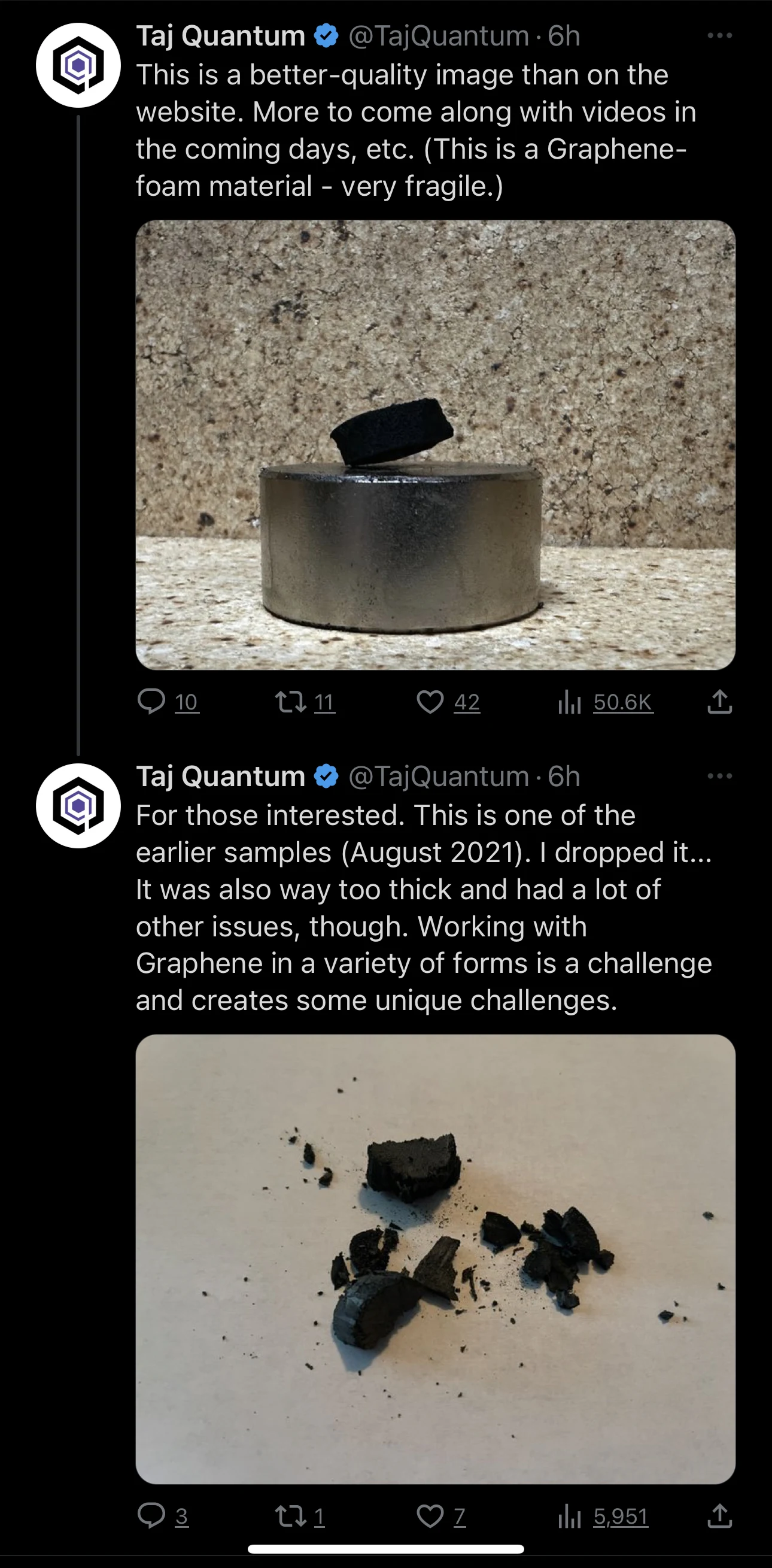
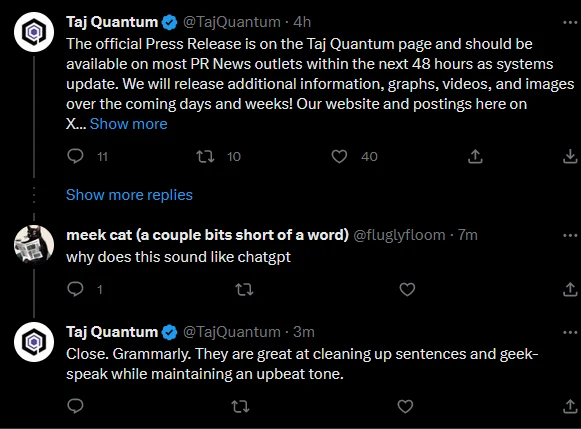
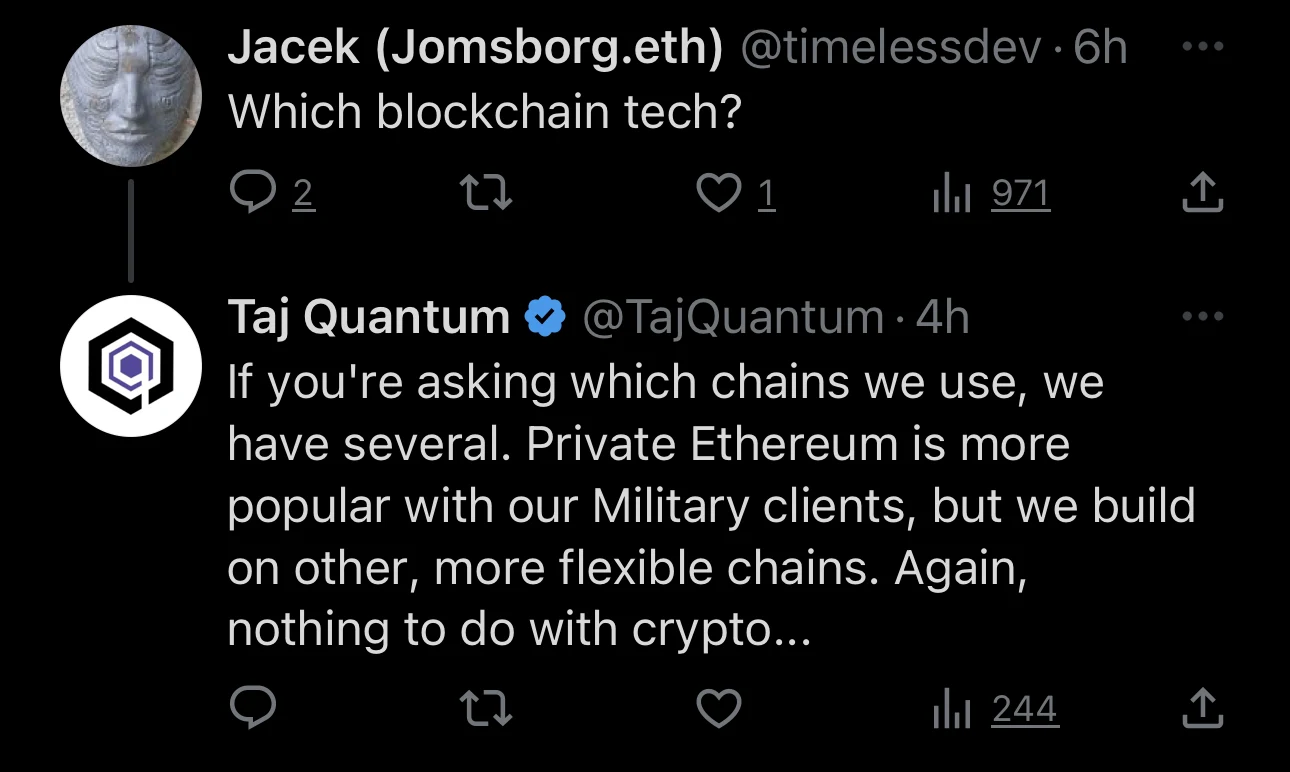
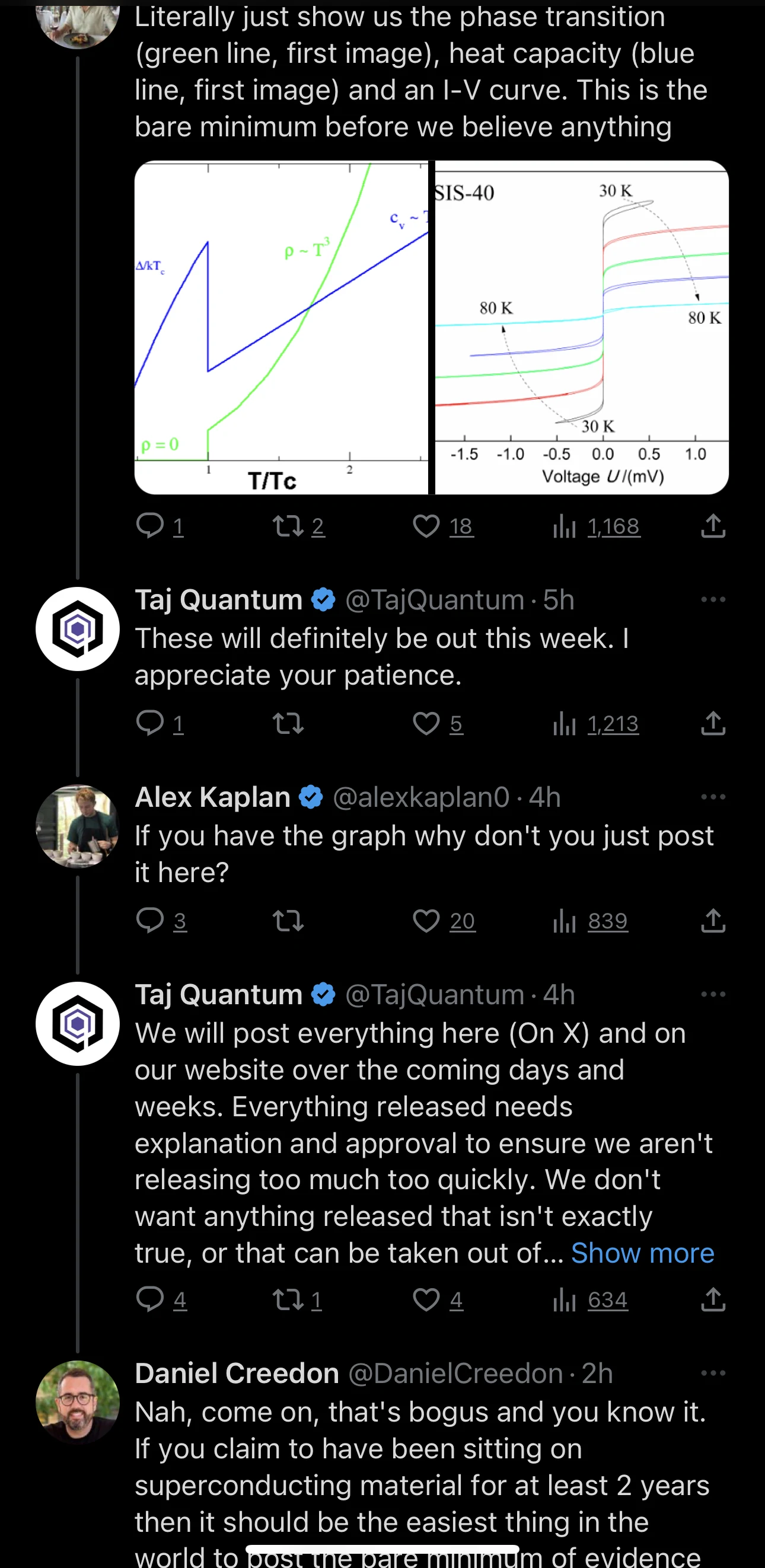






 fall for online scams more than their boomer
fall for online scams more than their boomer  grandparents do
grandparents do










